December 12, 2016 •
Monday News Roundup
Campaign Finance Arizona: “What Ever Happened to The Investigations into Tom Horne?” by Yvonne Wingett Sanchez for Arizona Republic California: “Contra Costa: Turmoil in DA’s office after agency head admits to violating California law” by Nate Gartrell by East Bay […]
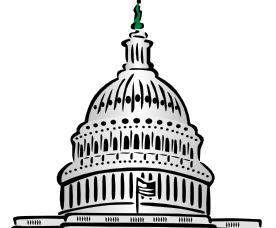 Campaign Finance
Campaign Finance
Arizona: “What Ever Happened to The Investigations into Tom Horne?” by Yvonne Wingett Sanchez for Arizona Republic
California: “Contra Costa: Turmoil in DA’s office after agency head admits to violating California law” by Nate Gartrell by East Bay Times
Maine: “Ethics Commission Favors Shedding Light on ‘Dark Money’ in Maine Campaigns” by Kevin Miller for Portland Press Herald
Oregon: “Portland City Council Set to Revive Publicly Funded Campaigns – in 2019” by Jessica Floum for The Oregonian
Ethics
“Trump Could Keep D.C. Hotel Despite Conflict of Interest” by Isaac Arnsdorf for Politico
“Suspected of Corruption at Home, Powerful Foreigners Find Refuge in U.S.” by Kyra Gurney, Anjali Tsui, David Iaconangelo, and Selena Cheng for Miami Herald
Kentucky: “Tim Longmeyer Pleads Guilty to State Felony” by Tom Loftus for Louisville Courier-Journal
Massachusetts: “Antiboycott Groups Pay for State Officials’ Israel Trips” by Frank Phillips for Boston Globe
South Dakota: “South Dakota Judge Puts Government Ethics Overhaul on Hold” by James Nord (Associated Press) for Sioux Falls Argus Leader
Lobbying
“Trump Victory Sets Off a Tsunami of Lobbying Activity by Companies” by Steven Mufson and Ylan Mui for The Washington Post
Florida: “PBC School Board Imposes New Rules for Lobbyists” by Andrew Marra for Palm Beach Post
Elections
“Obama Orders Intelligence Report on Russian Election Hacking” by David Sanger and Scott Shane for The New York Times
December 9, 2016 •
NYCU Video Digest – December 9, 2016
See what’s happening in government relations this week in our News You Can Use Video Digest. Enjoy!
See what’s happening in government relations this week in our News You Can Use Video Digest. Enjoy!
December 9, 2016 •
News You Can Use Digest – December 9, 2016
National: Gun Control Advocates Find a Deep-Pocketed Ally in Big Law New York Times – Jessica Silver-Greenberg and Ben Protess | Published: 12/7/2016 On the defensive, gun control advocates are now quietly developing a plan to chip away at the gun lobby’s growing […]

National:
Gun Control Advocates Find a Deep-Pocketed Ally in Big Law
New York Times – Jessica Silver-Greenberg and Ben Protess | Published: 12/7/2016
On the defensive, gun control advocates are now quietly developing a plan to chip away at the gun lobby’s growing clout: team up with corporate law firms. Together, the firms are committing tens of millions of dollars in free legal services from top corporate lawyers who typically bill clients $1,000 an hour or more. Although law firms often donate time to individual causes, and some firms have worked on gun control on a piecemeal basis, the number and the prominence of the firms involved in the new coalition are unheard-of for modern-day big law. Rather than fighting the political headwinds, the coalition is focusing on courts and state regulatory agencies, among the few places where they might still gain some traction.
Ontario Overhauls Campaign Finance Rules with Sweeping Reforms
Toronto Globe and Mail – Adrian Morrow | Published: 12/1/2016
Legislation that alters the political fundraising landscape in Ontario was approved recently. The new law takes effect on January 1, 2017. It will prohibit all provincial politicians, candidates, and senior political staff from attending fundraising events, ban corporations and unions from giving, and cap donations from individuals at $3,600 per political party annually, among other provisions. The reforms were introduced following revelations that corporate leaders and lobbyists seeking government contracts or favorable policy decisions had spent up to $10,000 to buy exclusive face-time with Premier Kathleen Wynne and members of her cabinet over cocktails and dinner.
Federal:
Business Since Birth: Trump’s children and the tangle that awaits
New York Times – Matt Flegenheimer, Rachel Abrams, Barry Meier, and Hiroko Tabuchi | Published: 12/4/2016
Since his election, Donald Trump has chafed at the suggestion that keeping his business in the family could create problems, despite several episodes during his transition that seemed to mix business and diplomacy. While he has insisted he faces no legal requirement to turn over the company, the Trump Organization said it is preparing an “immediate transfer of management” to Trump’s three eldest children, along with a team of executives. An examination of the professional histories of the three children shows how deeply the family, business, and politics are interwoven, raising doubts about how a meaningful wall can ever be erected between the president-elect and his heirs.
Justices Wrestle with Role of Race in Redistricting
New York Times – Adam Liptak | Published: 12/5/2016
Race and politics divided the U.S. Supreme Court along ideological lines in two cases that could affect the way state Legislatures draw election districts in the future. The court’s more liberal justices criticized maps drawn after the 2010 Census by Republican Legislatures in North Carolina and Virginia for focusing predominantly on the percentage of African Americans in various districts. The more conservative justices mostly defended the maps, either because race did not dictate the contours of the districts or because the motivator was political advantage, something the high court has not ruled against. Several justices expressed frustration that unless they define clearly what is allowed and what is not, they could be left with what Justice Stephen Breyer called “a set of standards that district courts can’t apply, which will try to separate sheep from goats.”
Trump Adviser Has Pushed Clinton Conspiracy Theories
Politico – Bryan Bender and Andrew Hanna | Published: 12/5/2016
Before the election, Lt. Gen. Michael Flynn, who is Donald Trump’s choice for national security adviser, tweeted a fake news story that claimed police and prosecutors had found evidence linking Hillary Clinton and much of her senior campaign staff to money laundering, perjury, and other felonies. Flynn’s tweet is attracting renewed attention after a man fired a rifle inside a Washington, D.C. restaurant that was the subject of false stories tying it and the Clinton campaign to a child sex trafficking ring. Some say Flynn’s fondness for spreading fake news casts doubt on his fitness to serve as national security adviser, suggesting he either cannot spot a blatant falsehood or is just ideologically bent to believe the worst of his perceived enemies.
Trump Sold All Shares in Companies in June, Spokesman Says
Washington Post – Drew Harwell and Rodsalind Helderman | Published: 12/6/2016
Donald Trump sold all his stock back in June, a transition team spokesperson said, showing the president-elect has begun to address concerns about complicated entanglements between his business and new government life. Questions about Trump’s stock holdings came back into view after he criticized the costs of Boeing to build a new Air Force One. Trump’s portfolio included shares in a number of banks, oil giants, and other companies with business pending before the U.S. government and whose value could rise due to Trump’s decisions in office. Those stock holdings, ethics advisers said, offered a potentially troublesome facet of Trump’s private finances that could entangle his public decision-making.
From the States and Municipalities:
Alabama
Ethics Commission Pulls Opinion Over Nonprofit Concerns
Montgomery Advertiser – Brian Lyman | Published: 12/7/2016
The Alabama Ethics Commission withdrew an opinion that said the state ethics law’s definition of a principal – an individual or organization that hires a lobbyist – included not only a firm that hired the lobbyist but anyone in the organization with authority, including executives, officers, and members of boards of directors. Lobbyists and principals cannot provide legislators with things of value. The jury that convicted former House Speaker Mike Hubbard on corruption charges accepted a broad definition of principal favored by prosecutors. That stirred unease in the business community and among nonprofits. Representatives of nonprofits who spoke at a recent commission hearing said many of their chief donors had cut off funds over concerns about the principal definition.
California
EBay Faces Fines from State Ethics Watchdog after Failing to Disclose Sacramento Lobbying on Time
Los Angeles Times – Patrick McGreevy | Published: 12/6/2016
The California Fair Political Practices Commission proposed a $6,500 fine for eBay after the company missed deadlines for filing lobbying spending reports and failed to properly disclose campaign contributions. The commission will vote on December 15 whether to approve the deal. EBay representatives told investigators the failure to file the reports on time was “inadvertent” and caused by a transfer of responsibility for filing during a “corporate transition.” The firm also was late in filing statements required of major donors that disclose their contributions.
Colorado
Amendment 71 Made It Harder to Get Initiatives on the Ballot – What Happens Now?
Denver Post – Brian Eason | Published: 12/5/2016
Anyone able to raise enough money and signatures can propose an amendment to the Colorado Constitution through a ballot initiative, sidestepping the legislative process. But Amendment 71, approved by voters November 8, made that harder to do, so much harder, critics say, that amending the constitution is no longer an option for all but the most well-funded organizations. Statutory ballot measures that fall short of amending the constitution are still on the table, but there are downsides to that approach too.
Florida
Corcoran Offers Lobbyist ‘Training’ to Adjust to New Legislative Limitations
Sunshine State News – Allison Nielson | Published: 12/1/2016
The Florida House passed a sweeping set of rule changes during its organization session, with several of those changes directly affecting lobbyists. To help lobbyists transition to the new guidelines, the House will be holding training sessions on December 13 and December 14 in Tallahassee. The lobbyist training will cover disclosure requirements for lobbyists, as well as other rules.
Massachusetts
Businesses Seek to Overturn Massachusetts Ban on Political Contributions
MassLive.com – Shira Schoenberg | Published: 12/7/2016
Under Massachusetts campaign finance law, businesses are not allowed to contribute to candidates. Individuals can donate up to $1,000 per year and unions can give up to $15,000. Republican lawmakers have tried, unsuccessfully, to bring the amount unions can donate down to $1,000. The law has typically benefited Democrats, who get the bulk of union campaign contributions. Attorneys for two businesses recently tried to convince a Superior Court judge to allow businesses to make the same political donations as labor unions.
Missouri
Lawsuit Seeks to Stop Campaign Contribution Limits Approved by Missouri Voters Last Month
St. Louis Post-Dispatch – Kurt Erickson | Published: 12/7/2016
A lawsuit filed in federal court challenges the voter-approved referendum that reinstated campaign contribution limits in Missouri. The same group that unsuccessfully sought to block the ballot measure before the November election argues the change in the state constitution unfairly limits some businesses and associations from giving money to campaigns. In particular, the change would stop the Association of Missouri Electrical Cooperatives from donating to campaigns and PACs, violating the free speech rights of its members, the lawsuit notes. The legal action comes one day before the new limits are set to take effect.
New York
Anthony Weiner Fined $65,000 for Campaign Finance Violations
New York Times – J. David Goodman | Published: 12/1/2016
The New York City Campaign Finance Board ordered Anthony Weiner’s campaign to repay more than $195,000 in public matching funds he received as part of his failed 2013 mayoral bid. The board also ordered the campaign to pay a $64,956 fine for spending irregularities, including personal expenses not allowed under the current law. The campaign committed multiple infractions, the board found, including accepting 21 contributions that exceeded the legal limit, accepting contributions in excess of the limit for donors who have business with the city, and failing to demonstrate how some expenses were made in furtherance of the campaign. New revelations of sexually explicit text messages and photographs, sent to women after he had left Congress, came to light and derailed Weiner’s bid for mayor.
North Carolina
North Carolina Gov. Pat McCrory (R) Concedes Closely Contested Governor’s Race
Washington Post – Amber Phillips | Published: 12/5/2016
Ending an acrimonious stalemate that dragged on for nearly a month, North Carolina Gov. Pat McCrory conceded in his bid for re-election, clearing the way for the ascension of his challenger, Roy Cooper, and giving the national Democratic Party a rare cause for celebration. Cooper, the current state attorney general, declared victory on election night, but McCrory’s allies lodged election challenges in dozens of counties. Most of the challenges proved to be of little consequence, however. As partial results of a recount of more than 90,000 votes that Republicans had demanded in Durham County showed no significant change in the results, McCrory had little choice but to admit defeat.
Washington
EPA, Tribe: State commission not venue for complaint
The Olympian – Don Jenkins (Capital Press) | Published: 12/7/2016
The Environmental Protection Agency (EPA) and a Puget Sound tribe say the Washington Public Disclosure Commission (PDC) should step away from an investigation into whether the What’s Upstream advocacy campaign violated state law. The EPA said a federal audit will answer whether What’s Upstream organizers misspent public funds. The tribe said the PDC has no jurisdiction over how a tribe spends money. Save Family Farming alleges What’s Upstream lead organizer Larry Wasserman, the tribe’s environmental policy director, failed to register his group as a political committee or grassroots lobbying organization. The complaint also named EPA Northwest Administrator Dennis McLerran and Seattle lobbying firm Strategies 360.
 State and Federal Communications produces a weekly summary of national news, offering more than 60 articles per week focused on ethics, lobbying, and campaign finance.
State and Federal Communications produces a weekly summary of national news, offering more than 60 articles per week focused on ethics, lobbying, and campaign finance.
December 7, 2016 •
Wednesday News Roundup
Lobbying California: “EBay Faces Fines from State Ethics Watchdog after Failing to Disclose Sacramento Lobbying on Time” by Patrick McGreevy for Los Angeles Times Campaign Finance Maine: “Proposal Would Require PACs to Disclose Major Donors” by Steve Mistler for Maine […]
 Lobbying
Lobbying
California: “EBay Faces Fines from State Ethics Watchdog after Failing to Disclose Sacramento Lobbying on Time” by Patrick McGreevy for Los Angeles Times
Campaign Finance
Maine: “Proposal Would Require PACs to Disclose Major Donors” by Steve Mistler for Maine Public Radio
Wisconsin: “After Conviction, Schmitt May Not Seek Re-election” by Adam Rodewall for Milwaukee Journal Sentinel
Ethics
“Trump Sold All Shares in Companies in June, Spokesman Says” by Drew Harwell and Rosalind Helderman for The Washington Post
California: “L.A. Ethics Commission Investigating LAPD’s Watchdog Over Handling of Special Inmate’s Jail Log” by Kate Mather for Los Angeles Times
Florida: “Broward Corruption Cop Sets Up Fight with Cities Over Ethics Reforms” by Brittany Wallman for South Florida Sun Sentinel
Minnesota: “10 U Officials Had Free Access to MSFA Suites at Vikings Stadium” by Rochelle Olson for Minneapolis Star Tribune
Elections
Colorado: “Amendment 71 Made It Harder to Get Initiatives on the Ballot – What Happens Now?” by Brian Eason for The Denver Post
Redistricting
“Justices Wrestle with Role of Race in Redistricting” by Adam Liptak for The New York Times
December 6, 2016 •
Tuesday Lobbying and Campaign Finance News Update
Campaign Finance “FEC Asks Congress for Authority to Battle Shady PACs” by Kenneth P. Doyle for Bloomberg.com New York: “Council Bill Could Make Campaign Fraud Easier in New York, Critics Say” by William Neuman for The New York Times Wyoming: […]
 Campaign Finance
Campaign Finance
“FEC Asks Congress for Authority to Battle Shady PACs” by Kenneth P. Doyle for Bloomberg.com
New York: “Council Bill Could Make Campaign Fraud Easier in New York, Critics Say” by William Neuman for The New York Times
Wyoming: “Wyo. Campaign Finance Law Often Goes Unenforced” by Matt Murphy (Wyoming Tribune Eagle) for Wyoming Business Report
Ethics
“Business Since Birth: Trump’s children and the tangle that awaits” by Matt Flegenheimer, Rachel Abrams, Barry Meier, and Hiroko Tabuchi for The New York Times
“Trump Adviser Has Pushed Clinton Conspiracy Theories” by Mattew Rosenberg for The New York Times
Florida: “Turning Code Violations into Payoffs, the Opa-locka Way” by Michael Sallah and Jay Weaver for Miami Herald
Michigan: “Politician Can Evade Questions, But Not Indictment in Rizzo Scandal” by Tresa Baldas for Detroit Free Press
New Mexico: “Ethics-Related Legislation Heads to Session” by Deborah Baker for Albuquerque Journal
Elections
North Carolina: “North Carolina Gov. Pat McCrory (R) Concedes Closely Contested Governor’s Race” by Amber Phillips for The Washington Post
December 5, 2016 •
Gov. McCrory Concedes North Carolina Governor’s Race
Nearly a month after Election Day, Gov. Pat McCrory conceded the governor’s race today in a video message posted to YouTube, making Democrat Roy Cooper the next governor of North Carolina. Following weeks of recounts and challenges alleging voter fraud, […]
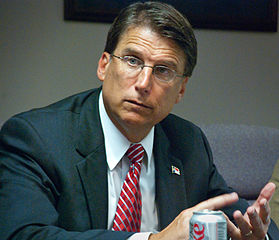 Nearly a month after Election Day, Gov. Pat McCrory conceded the governor’s race today in a video message posted to YouTube, making Democrat Roy Cooper the next governor of North Carolina.
Nearly a month after Election Day, Gov. Pat McCrory conceded the governor’s race today in a video message posted to YouTube, making Democrat Roy Cooper the next governor of North Carolina.
Following weeks of recounts and challenges alleging voter fraud, McCrory’s concession was made as early results from Durham County’s recount showed no change from initial results.
December 5, 2016 •
Portland City Council to Consider Campaign Finance Ordinance
On December 7, Portland City Council will consider the proposed Open and Accountable Elections package to create a public campaign finance matching system, increase penalties for willful violations of election laws, and improve contribution reporting requirements. The ordinance would put […]
 On December 7, Portland City Council will consider the proposed Open and Accountable Elections package to create a public campaign finance matching system, increase penalties for willful violations of election laws, and improve contribution reporting requirements.
On December 7, Portland City Council will consider the proposed Open and Accountable Elections package to create a public campaign finance matching system, increase penalties for willful violations of election laws, and improve contribution reporting requirements.
The ordinance would put the Office of Neighborhood Involvement in charge of enforcement. The proposal originally sought to place the task of enforcement on the Auditor’s Office, which administers elections; however, Auditor Mary Hull Caballero challenged the idea as a violation of the city’s charter.
December 5, 2016 •
Monday News Roundup
Lobbying Florida: “Corcoran Offers Lobbyist ‘Training’ to Adjust to New Legislative Limitations” by Allison Nielson for Sunshine State News West Virginia: “Ethics Panel Puts Question about WV House Speaker’s Job on Hold” by Phil Kabler for Charleston Gazette Campaign Finance […]
 Lobbying
Lobbying
Florida: “Corcoran Offers Lobbyist ‘Training’ to Adjust to New Legislative Limitations” by Allison Nielson for Sunshine State News
West Virginia: “Ethics Panel Puts Question about WV House Speaker’s Job on Hold” by Phil Kabler for Charleston Gazette
Campaign Finance
Canada: “Ontario Overhauls Campaign Finance Rules with Sweeping Reforms” by Adrian Morrow for Toronto Globe and Mail
Arizona: “Burns Responds to APS Settlement Offer: No thanks” by Rachel Leingang for Arizona Capitol Times
Missouri: “Politicians Fatten Coffers before Missouri’s New Campaign-Donation Limits Kick In” by Jo Mannies for St. Louis Public Radio
New York: “Anthony Weiner Fined $65,000 for Campaign Finance Violations” by J. David Goodman for The New York Times
Ethics
“Trump’s Complex Stock Portfolio Could Create Yet More Conflicts” by Rosalind Helderman and Drew Harwell for The Washington Post
South Dakota: “Hearing Set on Move to Repeal New Anti-Corruption Measure” by Bob Mercer for Rapid City Journal
Elections
“‘Rigged’ or Not, Election Positions Trump to Shape Rules on How You Vote” by Michael Wines for The New York Times
December 2, 2016 •
Special Election Likely for California’s 34th Congressional District
Gov. Jerry Brown has selected 34th Congressional District Rep. Xavier Becerra to be the next attorney general of California. The attorney general position became available when Kamala Harris was elected to the U.S. Senate in the November election. State law […]
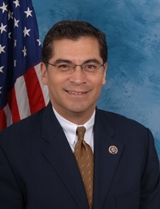 Gov. Jerry Brown has selected 34th Congressional District Rep. Xavier Becerra to be the next attorney general of California.
Gov. Jerry Brown has selected 34th Congressional District Rep. Xavier Becerra to be the next attorney general of California.
The attorney general position became available when Kamala Harris was elected to the U.S. Senate in the November election.
State law requires the governor to arrange a special election date within two weeks of Becerra leaving his congressional post.
December 2, 2016 •
NYCU Video Digest – December 2, 2016
See what’s happening in government relations this week in our News You Can Use Video Digest. Enjoy!
See what’s happening in government relations this week in our News You Can Use Video Digest. Enjoy!
December 2, 2016 •
News You Can Use Digest – December 2, 2016
National: Donald Trump’s Early Backers in State Government May See Rewards New York Times – Monica Davey | Published: 11/23/2016 In every race for the White House, there are early and fierce endorsers of the winning candidate who are […]

National:
Donald Trump’s Early Backers in State Government May See Rewards
New York Times – Monica Davey | Published: 11/23/2016
In every race for the White House, there are early and fierce endorsers of the winning candidate who are then viewed, post-election, as having greater influence. Some are courted for cabinet spots, but more seek the president’s ear on state policies, federal funds, and infrastructure projects. Rarely, though, are the lines as stark as in this election, largely because some Republican leaders took the unusual step of not endorsing Donald Trump – early or ever. And what this means now for the ones who did is far from clear.
How Stable Are Democracies? ‘Warning Signs Are Flashing Red’
New York Times – Amanda Taub | Published: 11/29/2016
Political scientists have a theory called “democratic consolidation,” which holds that once countries develop democratic institutions, a robust civil society, and a certain level of wealth, their democracy is secure. Yascha Mounk, a lecturer in government at Harvard, has spent the past few years challenging that assumption. His research suggests that liberal democracies around the world may be at serious risk of decline.
News Outlets Rethink Usage of the Term ‘Alt-Right’
New York Times – Sydney Ember | Published: 11/28/2016
With the election of Donald Trump – and his subsequent appointment of Stephen Bannon, a former chairperson of the right-wing website Breitbart News, as his chief White House strategist – the term alt-right has emerged as a linguistic flash point. Generally deployed by news organizations to describe a far-right, white nationalist movement known for its aggressive online expression, the term has attracted widespread criticism among those, particularly on the left, who say it euphemizes and legitimizes the ideologies of racism, anti-Semitism, Islamophobia, and white supremacy.
Federal:
Trump Announces He Will Leave Business ‘in Total’ – Leaving Open How He Will Avoid Conflicts of Interest
Washington Post – Drew Harwell | Published: 11/30/2016
Donald Trump said he would take steps to separate himself from his global business empire in the hopes of preventing the appearance of a conflict-of-interest as he becomes president. But Trump’s announcement, delivered in a series of early-morning posts on Twitter, drew an immediate rebuke from legal and ethics experts, who said the posts suggest Trump is not planning to take sufficient steps to eliminate the conflicts. It remains unclear what the president-elect’s plan will look like, but simply removing Trump from operational, day-to-day control of business decisions still could allow him to benefit financially from payments made to his companies by foreign governments, which may be prohibited by the so-called emoluments clause of the Constitution.
Trump to Accept Inauguration Funds from Corporations and Big Donors
New York Times – Nicholas Fandos | Published: 11/23/2016
President-elect Donald Trump is hoping to raise $65 million to $75 million to fund the activities planned for his inauguration. Trump plans to ban money from registered lobbyists, whom he barred from working for his administration. But the restrictions will be lighter on corporations and individuals, the groups that have traditionally provided a vast majority of funding for the festivities surrounding the transfer of power. Trump will seek corporate contributions of up to $1 million and even allow donations from PACs on a case-by-case basis. The restrictions, which members of the inaugural committee cautioned have yet to be finalized, represent a continued march back from standards set in 2009 by Barack Obama.
Trump’s Twitter Addiction Could Reshape the Presidency
Politico – Eli Stokols | Published: 11/29/2016
President-elect Donald Trump has recently proposed a reversal in American diplomatic relations with Cuba, boasted about negotiations with a major manufacturer, trumpeted false claims about millions of illegal votes, and hinted that he might upend current free speech laws by banning flag burning. All in 140 characters or less. As news organizations grapple with covering a commander in chief unlike any other, Trump’s Twitter account – a bully pulpit, propaganda weapon, and attention magnet all rolled into one – has as quickly emerged as a journalistic challenge and a source of lively debate.
From the States and Municipalities:
District of Columbia – D.C. Council to Debate Emergency Legislation on Campaign Finance Reform
Washington Post – Jasper Scherer | Published: 11/23/2016
District of Columbia Councilperson Kenyan McDuffie said he will introduce emergency legislation to bar contributions to PACs during non-election years in an effort to close what some view as a major campaign finance loophole before the start of 2017. McDuffie chairs the council’s Judiciary Committee, which is considering five related campaign finance reform bills, some of which include a closure of the loophole. Those bills are unlikely to pass before the legislative period closes at the end of the year, but McDuffie’s emergency bill would bypass many of the steps ordinarily required.
Maine – Maine Lawmakers Say Trips at Taxpayer Expense Are Vital
Portland Press Herald – Scott Thistle | Published: 11/27/2016
Five Maine lawmakers traveled to northern Labrador to learn more about a growing hydropower industry that some hope could lower electricity costs in Maine. Reps. Mark Dion and Ken Fredette said the nearly $1,500 cost to taxpayers was justified by what they and their colleagues learned. Both said that getting into the field and away from the meeting rooms in Augusta was important in helping policymakers understand how their state might benefit from shifting regional energy markets. The trip is one highlight in dozens of taxpayer-funded excursions reviewed as part of a Freedom of Access Act request for records of out-of-state travel by lawmakers in 2015 and 2016. The Maine Sunday Telegram sought the expense records after Democratic state senators accused two of their Republican colleagues of “double dipping” on expense reimbursements, including for out-of-state travel.
Minnesota – Obscure Party Funds Become Minnesota Campaign Cash Magnets
Minnesota Public Radio – Brian Bakst | Published: 11/30/2016
While Minnesota law limits how much individual candidates can take from lobbyists and PACs, the rules are looser for local party units. Interest groups have channeled hundreds of thousands of dollars to Republican and Democratic causes the past few years by moving the money through the local political units of some of the state’s most powerful lawmakers. The money flies mostly under the public radar but buys lobbyists visibility and possibly influence with the Capitol’s power brokers.
Missouri – Could 2017 Be The Year That Ethics Reform Takes Hold in Missouri?
Kansas City Star – Jason Hancock | Published: 11/28/2016
Jefferson City’s reputation has been fueled in part by the fact that Missouri is the only state with no limits on both campaign contributions and lobbyist gifts. As a result, huge donations to campaigns have become commonplace, and elected officials accept hundreds of thousands of dollars in gifts every year. Reform efforts stalled during the 2016 legislative session. But disappointment has given way to optimism over the results of the recent election. Missourians approved a constitutional amendment reinstating contribution limits, and elected candidates for governor and attorney general who made corruption the centerpiece of their campaigns. Voters gave lawmakers a mandate to finally pass meaningful ethics reform, said Assistant Senate Majority Leader Bob Onder.
New York – Emails Released by Mayor de Blasio’s Office Detail Reliance on Outside ‘Agents’
New York Times – J. David Goodman | Published: 11/23/2016
New York City Mayor Bill de Blasio’s administration released a third batch of its correspondence with outside advisers that it has designated as “agents of the city.” The emails date to the first days of de Blasio’s tenure, from early 2014 through April 2015. Watchdog groups have raised concerns that the advisers act as a “shadow government” and present concerns about conflicts-of-interest because they also represent companies that do business with the city.
North Carolina – In North Carolina, No End in Sight to Governor’s Race
New York Times – Richard Fausset | Published: 11/29/2016
The North Carolina governor’s race remains an unresolved, contested muddle. The challenger, Roy Cooper, has declared victory. But incumbent Pat McCrory, trailing by thousands of votes in the as-yet-unfinished tally, has refused to concede, as he and his allies charge the election was marred by numerous irregularities. The imbroglio is so complicated that a spokesperson for the State Board of Elections could not say when it might be resolved. It comes amid a broader wave of skepticism about the integrity of the basic mechanics of the American electoral process, including the recount of the presidential results in three states. The move enraged President-elect Donald Trump, who said on Twitter that “millions” of people had illegally voted for Hillary Clinton, a widely derided claim for which he offered no evidence.
South Dakota – Daugaard Favors Repeal of New Ethics Law
Rapid City Journal – James Nord (Associated Press) | Published: 11/23/2016
Over two dozen Republican lawmakers and others are going to court to block a government ethics overhaul approved by South Dakota voters on November 8. Their lawsuit filed in state court challenges the constitutionality of the ballot measure that took effect recently. Foes of the measure argue provisions including an ethics commission and limitations on lobbyist gifts to lawmakers run afoul of the state or federal constitutions, or both. Gov. Dennis Daugaard said he does not plan to include millions of dollars of funding in his December budget proposal for a public campaign finance system established under the new law.
Virginia – Special Interests Spend Millions to Pay Virginia Legislators’ Bills
The Daily Press – Dave Ress | Published: 11/27/2016
Virginia law does not place limits on who can give to political campaigns or on how much can be donated. Similarly, state law sets no rules for where or how candidates may spend campaign funds. That means money contributed to campaigns can, and often does, pay for expenses that have nothing to do with running for office. Large sums flow in – and keep rising, year after year, even though many legislators do not actually face opponents and only a handful represent districts where opponents can mount a serious challenge.
 State and Federal Communications produces a weekly summary of national news, offering more than 60 articles per week focused on ethics, lobbying, and campaign finance.
State and Federal Communications produces a weekly summary of national news, offering more than 60 articles per week focused on ethics, lobbying, and campaign finance.
December 1, 2016 •
Special Election for Minnesota House District 32B Scheduled for February 14, 2017
A special election for House District 32B will be held on Feb. 14, 2017. The Minnesota Supreme Court ruled Republican Robert Barrett was ineligible to run for the office because he did not reside in District 32B for six months […]
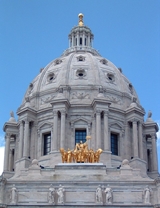 A special election for House District 32B will be held on Feb. 14, 2017.
A special election for House District 32B will be held on Feb. 14, 2017.
The Minnesota Supreme Court ruled Republican Robert Barrett was ineligible to run for the office because he did not reside in District 32B for six months immediately preceding the Nov. 8, 2016, general election.
Fellow Republican Anne E. Neu will replace Barrett to run against Democratic-Farmer-Labor candidate Laurie J. Warner.
December 1, 2016 •
Virginia Gov. Sets Special Election Date
Gov. Terry McAuliffe has set a special election date to replace members of the General Assembly who were elected to Congress. The election will be held on Jan. 10, 2017. Sen. Tom Garrett, District 22; Sen. A. Donald McEachin, District […]
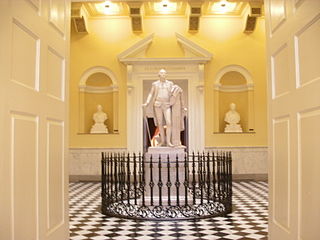 Gov. Terry McAuliffe has set a special election date to replace members of the General Assembly who were elected to Congress. The election will be held on Jan. 10, 2017.
Gov. Terry McAuliffe has set a special election date to replace members of the General Assembly who were elected to Congress. The election will be held on Jan. 10, 2017.
Sen. Tom Garrett, District 22; Sen. A. Donald McEachin, District 9; and Delegate Scott Taylor, District 85, each won seats in Congress.
Candidates have until Dec. 5 to register to be on the ballot.
December 1, 2016 •
Court Orders 2017 Special Election for NC General Assembly Seats
A federal appeals court ruled North Carolina must hold special elections in November 2017 for General Assembly seats in unconstitutionally gerrymandered districts. The Legislature will need to redraw districts by mid-March, and legislators recently elected from the affected districts will […]
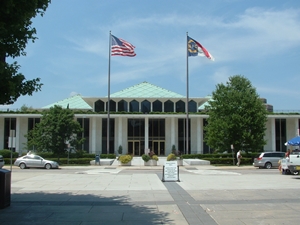 A federal appeals court ruled North Carolina must hold special elections in November 2017 for General Assembly seats in unconstitutionally gerrymandered districts. The Legislature will need to redraw districts by mid-March, and legislators recently elected from the affected districts will have their terms shortened to one year from the usual two-year term.
A federal appeals court ruled North Carolina must hold special elections in November 2017 for General Assembly seats in unconstitutionally gerrymandered districts. The Legislature will need to redraw districts by mid-March, and legislators recently elected from the affected districts will have their terms shortened to one year from the usual two-year term.
Earlier this year, the court ruled the affected 28 districts unconstitutional, but allowed the 2016 election to continue under the old maps. This new order settles the issue of whether the new districts would take effect for the regular 2018 election or if a special election would be necessary.
State and Federal Communications, Inc. provides research and consulting services for government relations professionals on lobbying laws, procurement lobbying laws, political contribution laws in the United States and Canada. Learn more by visiting stateandfed.com.

